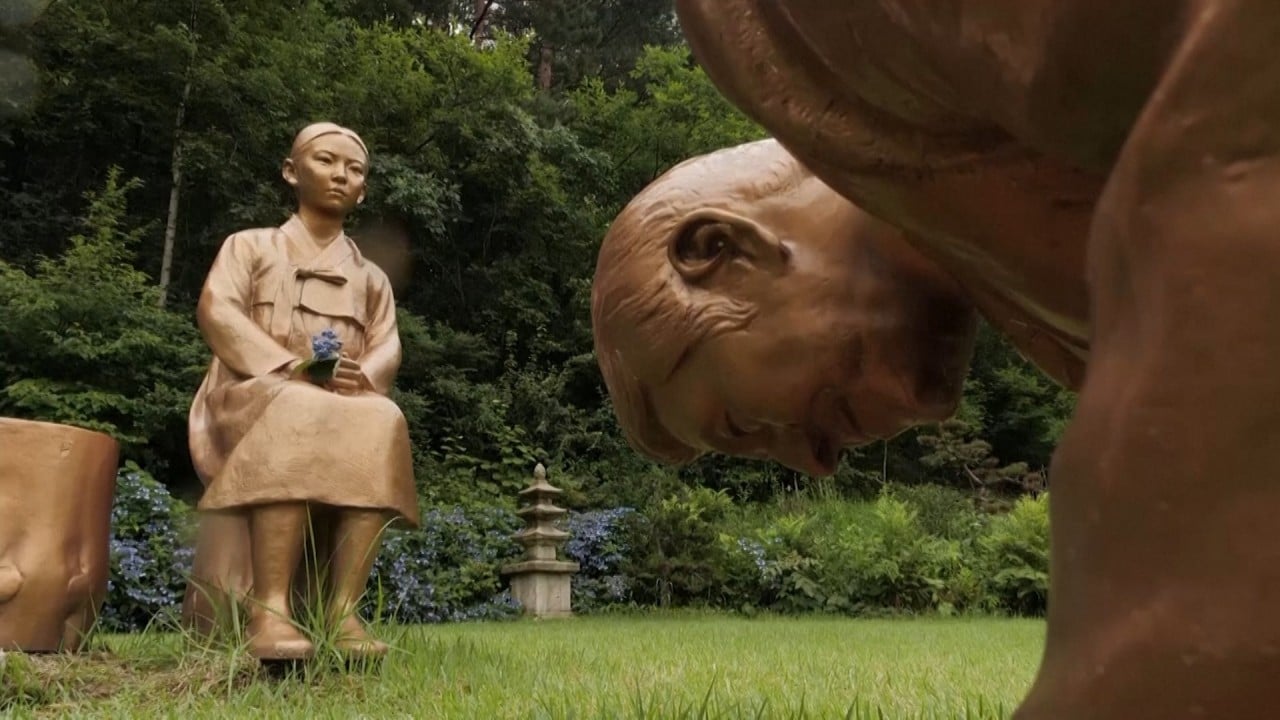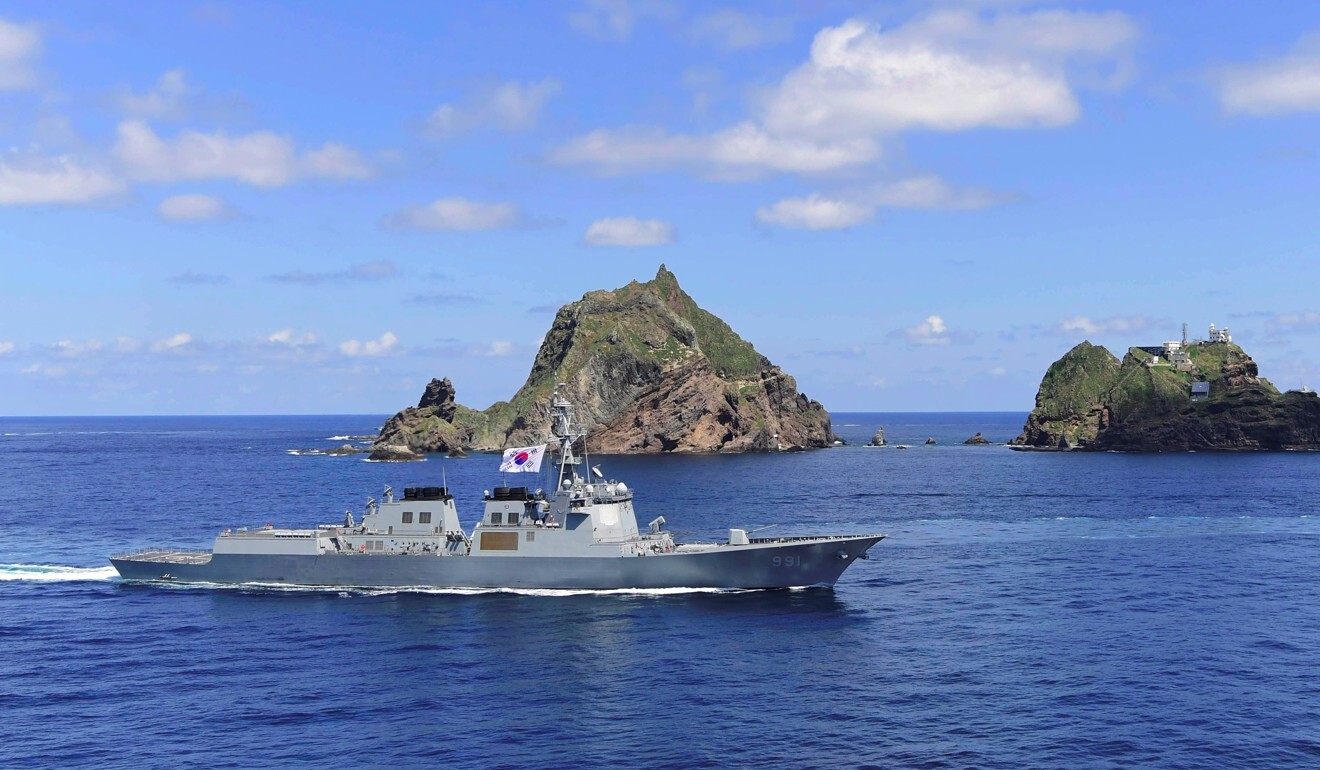
Japan pulls out of US news conference over South Korean police chief’s disputed island visit
- Japanese minister Takeo Mori skipped a three-way presser with his US and South Korean counterparts to protest General Kim Chang-yong’s trip to the disputed islets
- One analyst suggested Seoul could have used Kim’s visit to drum up support for the ruling party’s presidential candidate
US Deputy Secretary of State Wendy Sherman was left to answer questions on her own in the absence of South Korean First Vice Foreign Minister Choi Jong-kun and Japanese Vice Foreign Minister Takeo Mori, with whom she had just met for three hours.
Sherman began by noting that “there are some bilateral differences between Japan and the Republic of Korea that are continuing to be resolved,” but said the cancellation of the joint news conference was not related to the earlier trilateral meeting, which she called “constructive [and] substantive.”
‘Is Japan trustworthy?’: South Korean politician rejects 3-way defence alliance
The cluster of windswept volcanic rocks is controlled by Seoul, which calls them Dokdo, but are also claimed by Japan.
“The Japanese side has informed us that they cannot take part in the press conference due to the visit to Dokdo by the National Police Agency Commissioner General,” Choi told reporters.
Earlier on Tuesday, National Police Agency head Kim Chang-yong visited Dokdo via helicopter for an inspection and to convey “words of encouragement” to officers guarding the easternmost islets.
It marked the first time in 12 years that the chief of the National Police Agency visited Dokdo.

01:29
South Korea’s ‘comfort women’ statues featuring PM Abe ‘lookalike’ spark anger in Japan
In Tokyo, one analyst suggested that Kim’s decision to travel to the disputed territory before the meeting was “not a coincidence.”
“South Korea is deep into its election cycle and everything that happens there now has to be seen through that lens,” said Toshimitsu Shigemura, a professor of international relations at Waseda University.
“The government is trying to help the candidate from the Democratic Party, Lee Jae-myung, as it wants him to take over from President Moon Jae-in and continue his policies,” Shigemura said.
“I think they calculated that sending General Kim to Takeshima would trigger an angry response from Tokyo, the media and the Japanese public, which Moon and Lee could then use to win support in the election campaign,” he added.
“Lee is trailing in the polls at the moment, but we know that any politician who attacks Japan immediately sees their support rate climb.”

A spokesman for South Korea’s Ministry of Foreign Affairs said he had nothing to add to Choi’s remarks but that Seoul’s stance remains unchanged that Dokdo is the country’s territory historically, geographically and under international law.
Ties between the two nations have also frayed over Japan’s 1910-1945 occupation of Korea, including over “comfort women,” Tokyo’s euphemism for mostly Korean women forced to work in its wartime brothels. The historic dispute has sparked tit-for-tat trade restrictions in recent years.
Additional reporting by Julian Ryall and Park Chan-kyong

